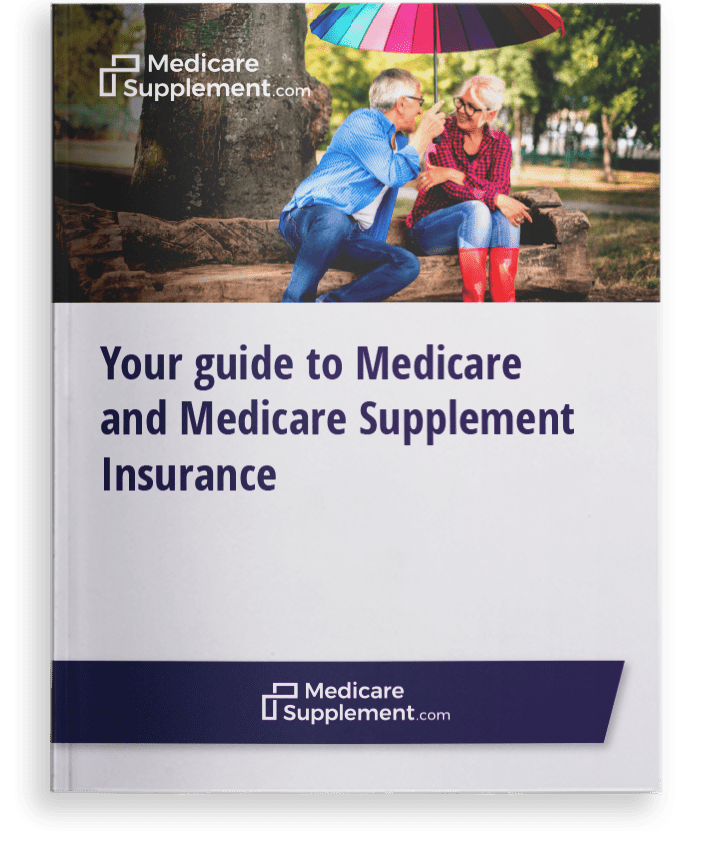Medicare 101
Medicare and Retirement
As you get older, health care should be an important part of any conversation about financial planning. If you’re an American over the age of 65 planning for retirement, that conversation will be centered around Medicare.
Planning for Medicare Costs in Retirement
Even though Medicare helps cover some hospital and medical costs, you may still be responsible for paying some out-of-pocket costs, including deductibles, copayments and coinsurance.
Your Medicare deductible is the amount you must pay out of pocket before Medicare will pay its share of covered services. You must meet a deductible for both your Part A and Part B benefits.
Until your deductible is met, you pay 100% of the cost of covered services. Once your deductible is met, you pay a portion for covered services and Medicare pays the rest. The portion you pay is the coinsurance or copayment.
Part A deductible & coinsurance
In 2024, the Medicare Part A deductible is $1,632 per benefit period. Benefit periods are based on how long you’ve been discharged from the hospital, which means you could encounter multiple Part A benefit periods in the same calendar year if you’re hospitalized more than once.
A benefit period begins the day you’re admitted to the hospital and ends when you’ve been discharged for at least 60 days. If you’ve been out of the hospital for longer than 60 days and are admitted again, a new benefit period begins.
In 2024, the Part A coinsurance amounts are as follows :
- Days 1-60 in a hospital: $0 coinsurance
- Days 61-90: $408 coinsurance per day of each benefit period
- Days 91 and beyond: $816 coinsurance per each "lifetime reserve day" after day 90 for each benefit period
- Beyond lifetime reserve days: you pay all costs
Part B deductible & coinsurance
In 2024, the Medicare Part B deductible is $240 per year. Once your Part B deductible is met, you typically pay a 20% coinsurance for covered doctor services and Medicare pays 80%.
To help cover these costs, some people purchase a Medicare Supplement Insurance plan (also known as Medigap). There are 10 standardized Medicare Supplement Insurance plans with varying levels of coverage. Speak with a licensed agent at 1-800-995-4219 to find Medicare Supplement Insurance plans in your area.
Understanding Medicare
Medicare is a federal health insurance program for people age 65 and over and people younger than 65 with a qualifying disability or medical condition. There are four parts to Medicare (Part A, B, C and D). Understanding the function of each part will help you choose the right coverage options and plan more effectively for retirement.
Medicare Part A
Medicare Part A (hospital insurance) helps cover:
- Inpatient hospital care
- Skilled nursing facility care
- Hospice
- Limited home health care services
Most people do not pay a premium for Medicare Part A, provided they paid sufficient Medicare taxes while they were working.
Medicare Part B
Medicare Part B (medical insurance) covers medically necessary doctor’s services and supplies needed to care for a medical condition. Part B also covers some preventative care. The standard Part B premium in 2024 is $174.70 per month. People with higher incomes may pay more for their Part B premium.
Part C
Medicare Part C, or Medicare Advantage, is alternative to Original Medicare. Medicare Advantage plans offer all of Medicare’s benefits through a private insurance plan rather than the federal government. Insurance companies that sell Medicare Advantage plans are legally required to offer at least the same benefits as Original Medicare (Medicare Part A and Part B), and most offer some additional coverage, such as vision, dental and prescription drug coverage.
Costs associated with Medicare Advantage plans vary by plan.
Part D
Medicare Part D covers outpatient prescription drug coverage. Original Medicare does not cover most prescription drugs, so this coverage must be purchased separately in the form of a private, standalone Prescription Drug Plan (PDP). Many Medicare Advantage plans also include Part D coverage.
Signing Up for Medicare
The best time to enroll in Medicare is during your Medicare Initial Enrollment Period, which begins three months before you turn 65, includes your birthday month and ends three months after your birthday month (seven months total).
If you do not sign up during your Medicare Initial Enrollment Period, you can sign up between Jan. 1 and March 31 of each year for coverage beginning on July 1 of that year. If you miss your initial enrollment period, however, you will experience a delay in coverage and may end up paying higher premiums for the rest of the time you receive Medicare benefits.
Sometimes, Medicare allows for a special enrollment period as exception to the rule above. You may qualify for a special enrollment period if you or your spouse are still working and are covered by a group health plan from an employer when you turn 65. A special enrollment period usually lasts for eight months after your group coverage ends and usually you don't have to pay a late enrollment penalty.
Medicare and Social Security
Medicare and Social Security are two different programs, but they often work together. People age 65 and older receive a monthly benefit from the federal government in the form of a Social Security payment.
The programs work together in the collection of Medicare premiums. Once you're enrolled in Original Medicare and you are receiving Social Security benefits, your Part B premium will be automatically deducted from your benefit check. If you aren't receiving those benefits, you can expect a bill in the mail.
Medicare Supplement Insurance
Medicare Supplement Insurance (Medigap) plans help pay for certain Medicare out-of-pocket costs, like deductibles, coinsurance and copayments.
Speak with a licensed insurance agent to find Medicare Supplement Insurance plans in your area!
Note: You may not have a Medigap plan and Medicare Advantage plan at the same time.
Learn More
Learn more about Medicare Supplement Insurance with these recommended articles:
What Does Medicare Supplement Insurance Cover?
Compare Medicare Supplement Insurance Plans

Get a Free Medicare Guide!
Enter your email address and get a free guide to Medicare and Medicare Supplement Insurance, as well as important Medicare news and tips. We promise to never send you spam – just helpful content!
By clicking "Get your guide" you are agreeing to receive emails from MedicareSupplement.com.

